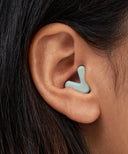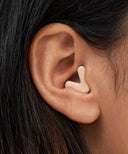What is self-care?
The term “self-care” is becoming increasingly popular. But what exactly does it mean? Put simply, it's about making a conscious effort to take care of your physical, mental, and emotional health. It’s not about pricey spa days or endless meditation; instead, it’s about small, consistent actions that support your well-being. These include getting enough rest at night, eating healthy, exercising, and taking time to recharge mentally. Taking good care of yourself!
The concept of self-care is based on the idea that you're responsible for your own health and happiness. It’s about recognizing your needs and actually doing something about them. Self-care isn’t selfish—it’s necessary for maintaining balance. This can be tough, especially in the hectic world we live in. We’re juggling so many things. It would be a shame if you were the one to drop.
Why is taking care of yourself so important?
Taking good care of yourself has plenty of benefits. It reduces stress, lifts your mood, and boosts your energy. People who regularly practice self-care tend to be more productive, emotionally balanced, and enjoy better relationships. Why? Because when your battery’s full, you have more to give to others.
Self-care also helps prevent burnout. In an age where we’re constantly connected through work, social commitments, and digital distractions, it’s essential to carve out time for rest and reflection. Your health, work performance, and overall quality of life depend on it. Plus, it just makes you more pleasant to be around.
How can you make self-care part of your routine?
Self-care is most effective when it becomes part of your everyday routine—like brushing your teeth or setting an alarm. That doesn’t mean you need to block out hours every day, but it does mean consciously choosing moments that work for you. Make a plan, start small, and above all, be kind to yourself. Here are seven practical tips you can start using today.
7x self-care tips
Tip 1: get enough sleep
Getting a good night’s sleep is the most important part of self-care. Deep sleep is essential for your health—it gives your body and mind time to recover. While you sleep, your brain processes emotions and experiences, and your body repairs cells and boosts your immune system. It all happens naturally. All you have to do is sleep. If a snoring partner or surrounding noise is keeping you up, consider using sleep earplugs. Give yourself the rest you truly need.
Tip 2: start the day without your phone
Slept well? The first thing most of us do after waking up: grab our phones. A few minutes scrolling Instagram or checking emails—and boom, your day’s already reactive. Try staying offline for the first 30 minutes of your day. Enjoy a calm breakfast, go for a short walk, or spend a few minutes journaling. You’ll start your day with more clarity and calm. Got little kids? Set your alarm earlier so you have a moment to yourself—without your phone.
Tip 3: add silence to your day
In a world full of noise, silence is golden. It helps calm your nervous system and allows room for reflection. Schedule a moment of quiet each day. Go for a walk without music, sip tea in peace, meditate, or read a book. Use Silence earplugs to block out the outside world and reconnect with yourself. A short break from distractions can do wonders for your state of mind. Sometimes, a little silence is all you need.
Tip 4: eat mindfully
We often eat on the go. But eating isn’t just about fueling your body—it’s a form of self-care too. Take the time to eat mindfully. Turn off your screen and enjoy your food by chewing slowly. It helps digestion and increases your feeling of contentment. Also try to choose foods that truly nourish you—not just fill you up. Most importantly, enjoy it! That’s self-care, too.
Tip 5: find a workout routine that works for you
Exercise is essential—but that doesn’t mean hitting the gym five days a week. The key is finding an activity you enjoy. It could be yoga, biking, walking, running, or even dancing around your living room! When movement is fun, it stops being a chore and becomes something to look forward to. Set regular times in your week to move and let off steam.
Tip 6: Say “no” more often
Setting boundaries might be the most powerful form of self-care. You don’t have to say yes to everything. By choosing what you do—and don’t—do, you protect your energy. It may feel uncomfortable at first, but it gets easier with practice. Start small: say no to a dinner you’re not up for, or reschedule that appointment. Give yourself space. Saying “no” is okay.
Tip 7: create a self-care list
Sometimes it takes a while to figure out what you need. One useful exercise: make a list of things that help you relax or recharge. Think hot baths, walks in nature, reading, or listening to a podcast. Keep the list somewhere visible and turn to it when you're feeling overwhelmed. Think of it as your personal first-aid kit for a calm mind.
Self-care in daily life
The most important part of self-care is consistency. It doesn’t have to be perfect—quite the opposite. Start with one small change and build from there. Track what works for you and adjust as needed. Remember: taking care of yourself is a lifelong process. The better you take care of yourself, the better you can support others.
If you’re looking for moments of quiet in your busy life, tools like Silence earplugs or our earplugs for sleeping can be a valuable help. Taking care of your hearing is definitely a form of self-care, too.




